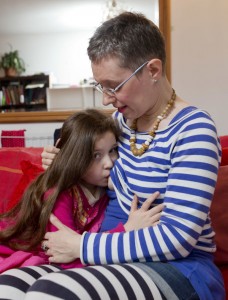I write in my book (At Home on the Kazakh Steppe) that it’s those “cultural differences that make me gasp, make me shout, ‘oh no’ that are of most interest to me.” And, living in historically nomadic, predominately Muslim, and proudly communal Kazakhstan, it was easy for me to come up with many examples of cultural differences I met every day.
Lately I’ve become interested in the cultural differences that might make me gasp right here at home.
Before I proceed, I’d ask you to take just a moment and see if any particular ones come to mind. I know readers to my blog come from many countries, and I’ll be interested at the end to learn what LOCAL challenges from cultural differences you find in your own backyard. Any that have made you gasp?
These might stem from different religious practices, different ethnic heritages, different regions of our own country (which, if you go back far enough, is also an ethnic heritage difference, often), different gender, age, marital status, level of education. You get the idea.
Cultural differences are all around us. Often, we’re just used to them and no longer bat an eye. But sometimes the jump out at us, startling us in the least, filling us with curiosity perhaps, or filling us with fear or anger. These instances are occuring at a faster and faster pace.
Today’s post is intended as a primer, a How To essay on what to do when you find yourself in one of those “oh no” moments. And you will, if you haven’t already.
So, sit for a moment and see what comes to mind. Write them down too if you can.
I’ll wait
Really, I will.

OK. Let’s move on.
In my case, my own backyard (and for about 200 acres beyond that) contains only wildlife. So, for today’s blog, I’ve looked for cultural differences that made the news in the USA this past month. I found two, both dealing with different notions of parenting. Today I’ll post on one of them.
I wonder if it’s one you also noted.

These photos are from NPR.org’s “most emailed stories” collection which picked up the story from Cosmopolitan Magazine (January 15), where it had garnered 1,176 Comments and over 24,000 Shares.

The article was entitled, What’s Right About A 6-Year-Old Who Breast-Feeds
Small print: my interest here is not on who or what is right or wrong. That’s too easy. My focus is on recognizing when a cultural difference is staring us in the face, getting clear about our initial reaction and owning it as ours (and not “she made me feel this way”) and understanding what value of ours we felt the behavior crossed.
Keep in mind too that some differences are “idiosyncratic,” meaning it’s a difference at the individual level, not at the level of culture. To be a “cultural difference,” there must be others engaged in the same behavior and with whom the participant feels a sense of tribal connection. Social movements qualify.
For example, when I breastfed my sons, I felt a bond of connection with other nursing mothers which I did not feel with mothers of bottle-fed babies. I wanted to be a part of this culture, this tribe of breast feeding women. Women who bottle fed were the “other.” And yes, where there’s a culture, there’s a “not-in-the-culture” as well, by definition.
As ever, I’m interested in exploring ways to co-exist with “other ways of doing it,” whatever the “it” might be. I’m curious about when and how we find it particularly difficult to accept the other point of view.
So, back to our breastfeeding six year olds. Here’s another photo from the same thread:

From the article entitled, Why This Mother Is Still Breast-Feeding Her 6-Year-Old Daughter
In my day (I love saying that, let me do it again) In my day, the big fuss regarding breastfeeding was over where and how much covering was required. The thinking was that breast feeding shouldn’t be too obvious, too public.
My, how times have changed.
Here are some questions to get you started. Think to the first time you saw one of these photos.
1.Did you gasp?
2. Could you name your initial emotional reaction? (e.g., mad, sad, glad, afraid, bored)
3. Was there a value of yours involved here? If so, which one?
4. Did that change as you learned more?
Parental responsibility, I think, is an arena that hits close to home. Next week’s post will continue in this vein, but with a different story line to start from.
You can read more about this story at these links.
NPR.org Jan 16 (where I first learned of it).
Cosmopolitan, Jan 6
Daily Mirror ran a Follow-up interview with six breast-feeding mothers.
Daily Mirror Dec 26, (the initial story)
HOW ABOUT YOU? What local cultural differences have challenged you? Did you think a bit more about how (and why) you “do it differently?” Did you identify a value you hold that felt threatened here? Did you arrive at a different or deeper appreciation of your own value, or a better understanding of why you do it the way you do?
Kathleen Pooler
Janet, I love how you never hesitate to bring up “lightning rod”issues. Whether one believes in breastfeeding or not, the bottom line is to respect an individual’s choice to practice or not. When I breastfed my babies back in the 70s there was an outcry against breastfeeding even infants in public. I think we’ve come a long way since then. Breastfeeding an older child of six seems extreme to me but I certainly can’t argue with the UK Mom’s rationale. In order to respect cultural differences, we have to be willing to listen and understand the rationale behind the behaviors. There’s a reason why people behave the way they do. Being open to understanding another’s POV is the first step in accepting others for who they are. Thanks for another provocative post and related links.
Janet Givens
Thanks Kathy. You hit the nail on the head: it is the “being willing to listen and understand” that can sometimes be so challenging in living among cultural differences. The being willing, in the moment.
Some days, we’re more willing than other days.
And thanks for taking the time to read the NPR article that includes the research on breastfeeding these older kids. In putting this blog post together, I was torn between just leaving the research for the reader to dive into if desired, or summarizing it myself.
I’m so glad you’ve given Julie Freed air time on your blog this week. Her’s is a gripping tale. I’m part way through it now.
Frank Moore
Janet, the first thing that came to mind when you asked, probably because Disneyland has been in the news and it was the subject of Larry Wilmore’s panel, is the anti-vaccination movement. Talk about controversial!!
Bet a post on that subject would draw lots of response.
Janet Givens
That is a great one, Frank. Thanks. Even the whole-food, the slow-food, the anti-GMO movements qualify. Culture is a marvelously maleable concept. Next one is the free-range kids movement.
I’ve discovered a new operational definition for a social movement: does it have a website?
Susan
i just wonder what long term effect it willhave on those 6 yr old boy and girl!
Janet Givens
Hello Susan and welcome. I had thought the same thing. The NPR article offers info on some of the research going on. Take a look.
Breastfeeding Six Year Olds |
[…] weeks ago I posted a blog about breastfeeding. I thought I had said it […]
Sharon Lippincott
How funny Janet, I wrote a post on this topic three years ago, based on watching an alpaca nurse a nearly grown offspring in Bolivia. I was also urging people to write about lightning rod topics. http://heartandcraft.blogspot.com/2012/05/alpacas-are-mom-enough.html.
One thing I find hard to understand is an apparent increasing intensity of the bond pet owners have with their animals. I understand the appeal of pets, but I don’t understand treating them like people and spending vast sums of money on gourmet food, clothing, pet hotels, vet bills, life support for … an animal. No judgment intended for those who do these things. It just baffles me.
Janet Givens
Sharon, your blog post from May 2012 is a great addition to this conversation. Thanks for that. These cultural shifts that occur all the time do often challenge the “old folks” among us. And your story was a good reminder I may be falling into that “old folks” camp sooner than I may have expected. Hmmmm. I do try, each time I find myself bemoaning the state of affairs in our country today, to remember that my grandmother once said exactly the same thing. I rolled my eyes then and don’t want to invite that reaction today. Thanks. And welcome. It’s great to have you here.
Marian Beaman
This is starting to sound like “Janet Unleashed” and that strikethrough proves it.
A woman with chutzpah you prove that if a topic is strong enough, you can re-visit it. I want to ponder your questions and supply an example probably from my Ukrainian experience, but I can’t think of any yet, so I’ll have to come back. I enjoyed reading the comments above. You’ve got a real conversation going here.
When I encounter a cultural difference, a good rule of thumb is to be silent and listen (two words forming an anagram) to stifle words of judgment. Mostly, I succeed – well, I hope so.
Janet Givens
Be silent and listen. Words to ponder, silently.
Hi Marion. I’m always eager to hear your Ukraine stories. But, I’ve noticed that both you and Sharon have posted on the blog post from two weeks ago. When you come back with your story, will you post it on the one from today? Or not. I’m now unleashed, as you know. No rules.
Chincoteague 2015 Writers’ Retreat Redux |
[…] I did that with that breastfeeding one,” I protested, referring to my post of January 28, Bringing Cultural Differences Home. And I waxed on about how that story had first landed on me: with a gulp and a gasp and an OMG or […]
The Free-Range Kid Movement |
[…] month I wrote about the breastfeeding revolution, first on January 28 and again on February 11. I urge you to take a look, if you missed either of them. They were fun […]